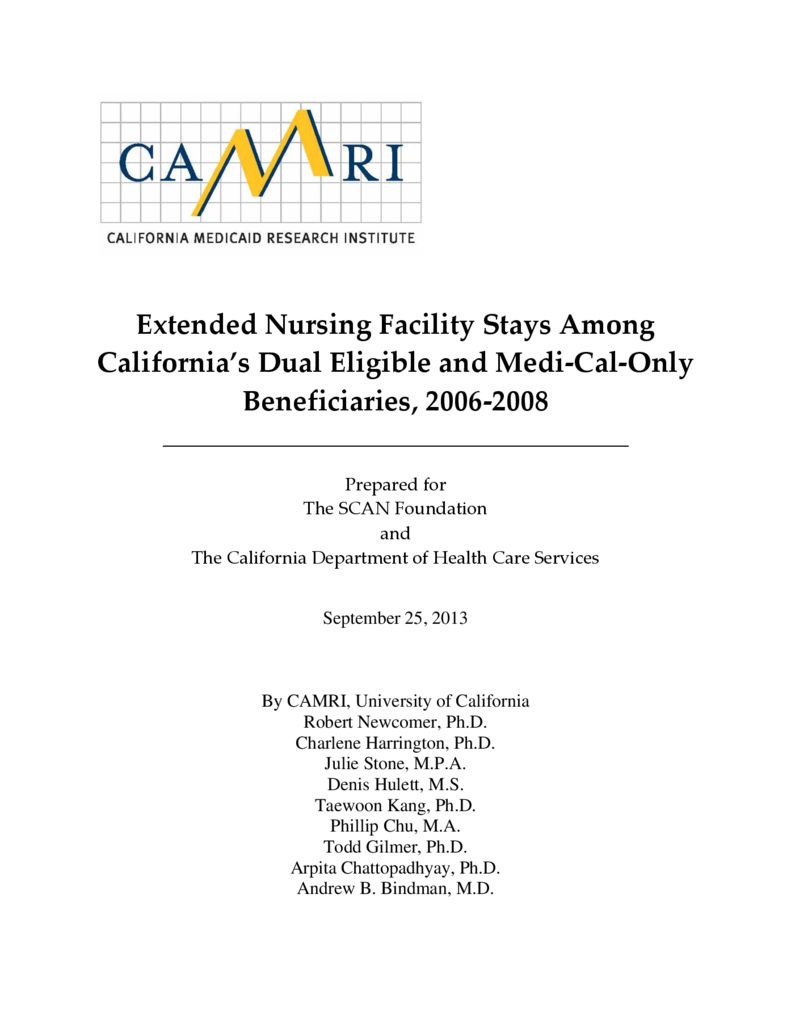CAMRI: Extended Nursing Facility Stays Among California’s Dual Eligible and Medi-Cal-Only Beneficiaries
summary
This report describes nursing home stays of two of California’s most vulnerable populations: those who are dually eligible for Medicare and Medi-Cal and Medi-Cal only beneficiaries. Findings suggest the need for improved coordination between health care and long-term services and supports systems in order to more efficiently and effectively provide services to meet people’s needs.
Date Updated: 09/18/2013Medicaid is the single largest payer of nursing facility (NF) care (also referred to as nursing home care) in the United States, accounting for 31% ($46.1 billion) of the total $149.3 billion spent nationally on this care in 2011. Medi-Cal alone, California‟s Medicaid program, spent nearly $3 billion on NF care in 2008 for eligible beneficiaries in fee-for-service (FFS) who were age 18 and above.
Continue Reading
This policy brief provides an introduction to The SCAN Foundation’s CLASS Technical Assistance Brief Series, which explores many of the critical issues to be considered for successfully implementing CLASS.
This policy brief describes the broad needs of individuals with disability and the wide range of supportive and environmental solutions that can allow for the most independent living possible. It suggests how findings on social and environmental supports for individuals with disability can inform implementation of CLASS.
This policy brief provides background on the historical development of benefit eligibility triggers in the private long-term care insurance market. Understanding how these triggers came into being can provide important information to those charged with implementing the CLASS Plan.


